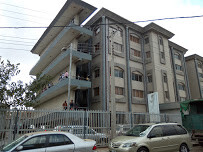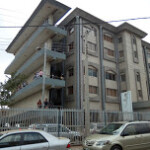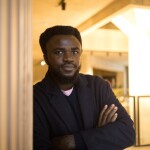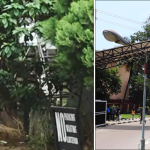Even in the hallowed temples of justice in Nigeria, discrimination against lawyers with disabilities masquerades as inequality, and My Lords blink over the iniquity
Gideon Oladimeji
In 2018, seven years after the Lagos Special People Bill became a law, a man had a run-in with a judge on a Federal High Court premises at Ikeja, Lagos. It all began when the man, after a long, hopeless cruise around the court for where to park his car, pulled up in a space near the judges’ gate, and hobbled in to court. He came back later to find his car tires flattened, on the order of the judge. Daniel Onwe, is not only a rights lawyer, but also president, then, of the Association of Lawyers with Disabilities in Nigeria (ALDIN).
On realizing this, Justice Ibrahim Buba stopped the court session, apologized and conferred with Onwe, instructing the court guards to let him park his car anywhere thereafter. An act of charity by His Lordship.
The Discrimination Act 2018 passed to law a year later makes it Onwe’s right. More, its section 6 mandates public buildings old and new to be fitted with accessibility features, including one separate parking lot (the Lagos Special People Law says one out of every 20) for the PWDs—within five years of passing the bill to law.
Up till now, the federal government has yet to obey its own law, and it is about nine months to the end of the five-year window.
At the Ogba Magistrate Court, Onwe was on the third floor, for a case, in 2019. Then he was pressed to take a leak. But there is no toilet on any of the floor.
The four-story building is not an old one, to be sure. Babatunde Fashola, the state’s former governor, commissioned it in May 2015, four years after the Lagos Special People Law kicked in. As of now, all the building boasts, which Onwe commended still, are ramps that spiral up the fifth floor. There is a lift, too, but ER observed nobody rode in it on April 27.
Other Lagos court premises don’t even have such luxuries.
“Most court rooms are still upstairs,” Onwe, now chairman of the Association of Lawyers with Disabilities in Nigeria, Lagos chapter, told ER. “That means a person in a wheelchair, be they a lawyer, a witness, or a litigant would either crawl into court or be carried in like a sack of garri.”
Those options are not only necessary to grab in answering the call of legal duty. That day, the lawyer told Premium Times, he had to take the tortuous journey on his crutches, down to the ground floor to also answer the call of nature. And at the Ogba Magistrate Court, a lawyer or litigant in a wheelchair has to crawl or ride piggybacked, N50 in his hand, to use any of the four toilets on the ground floor. Each entrance door is a needle eye that leads to a narrow passage facing two toilets, their doors unhinged.
Besides the High Court at Ajah which Onwe also commended for its level of accessibility, not many of the courts have showed any reverence for the state’s disability law.
The ages of the court buildings are not even an excuse.
“From the date of the commencement of this Law, there shall be a transitory period of 5 (five) years within which all public buildings, roads, pedestrian crossings and all other structures shall be modified to be accessible to and usable by persons living with disability,” section 24, subsection 5 of the law, states.
For new court buildings going up the skyline after the five years, the law insists: “No public building shall be constructed without the necessary accessibility aids such as lift (where necessary), ramps and others that shall make them accessible and usable to persons living with disability,” section 24, subsection 2, states.
With four territorial judicial divisions and seven magisterial districts, the Lagos judiciary is supposed to be the oldest and most experienced of all states’ judicial arms in Nigeria. But, now, it’s clear, from the state’s violation of its own law, that such status does not necessarily make it as accessible to PWDs—as justice, which the judiciary serves, demands.
The state judiciary won’t accept responsibility for this discrimination. “It’s the negligence of those who constructed the courthouses,” they told Susan Kelechi. The disability advocate said she got that response when she confronted the Lagos judiciary representative at a forum in Lagos years ago.
If Lagos flouting of its own law exposes government impunity in disregarding PWD-related laws, then the federal government is certainly going to get away with its own forth-coming violation.
Just like the Lagos disability law, the Discrimination Act 2018 has got no compliance from the federal government so far.
As the window closes Feb 2024, lawyers and litigants with disabilities in Lagos will have to continue enduring the pain and indignity they have been facing for over a decade in the temples of justice, state and federal, across the state.

Inside the Ogba Magistrate Court toilet
Onwe would not reveal the number of his learned colleagues with disabilities practising litigation law; but he could be just one of the few in Lagos. Others, Barrister Lukman Salami once told ER, are into estate and other fields where they don’t have to navigate staircases and landings in courthouses. Yet everybody is supposed to be equal before the law.
“When the environment is so inaccessible such that I undergo torture to access it—it is a violation of my right to the dignity of human person,” Onwe told ER.
According to him, a litigation lawyer who depends on a wheelchair to enter an inaccessible court room has three options: To alight from his wheelchairs and crawl on all fours; two, to be carried out of his wheelchair into his court, and that will be dependent on the availability of good Samaritans. The other one is to carry him or her in the wheelchair into the court.
“None of these options is good for the image of the lawyer in question or the legal profession at large,” he said. “So it takes extra determination, hard work, and focus for LWDs to remain in the system.”
Ikem Uchegbulam, the national president of ALDIN, is among those determined to practise the legal profession in the country where he noted most of the courts are built without PWDs in mind. He blamed the state governments for that—that indignity and limitation which inaccessibility erects in the career path of lawyers using wheelchairs.
“I have had matters upstairs in court here in Abuja. I had to make applications for the cases to be transferred downstairs or to courts where I don’t have to climb a staircase,” he told ER in an interview. He went the whole hog because he was invested in those cases. ‘That was the only dignifying way for a lawyer in a wheelchair to go about it if he’s eager to practise litigation.”
Uche also cited about two courts buildings that are wheelchair-accessible in Abuja, including the one at Maitama.
He has a reason for being particular about wheelchair users. A lawyer with visual impairment can hire an assistant to lead him to court, he said. Likewise those who have hearing impairments can walk in to the court on their own, with their own sign language interpreters. “You will agree with me it will be unrealistic to ask every court in Nigeria to get an assistant or an interpreter for lawyers with disabilities,” he said.
He wasn’t picking holes in the Discrimination Act by pointing out this unrealistic interpretation or provision. “The law is 90 percent OK,” he said. Maybe he didn’t want to ask for too much for now. All the ALDIN caucus of the Nigeria Bar Association, according to him, is making efforts to do now is sensitize Nigerians on the Disability law.
“If the government can comply with the provisions, the Act will be a good place to start from. Rome was not built in a day. We can add amendments later,” he said.
Who will then make the governments obey their own laws?
“Well, it is the government that make the laws and it is the government that build the courts. So it is the responsibility of the government to obey its laws,” Onwe said.
To make them comply is not possible now. Especially in the matters of the Discrimination Act 2018.
“It is not yet a crime that they are not complying,” Uche said, “because the Act provides for a five-year moratorium which ends next January”
After then, the lawyer hinted, there will be massive legal crackers across Nigeria, not just about inaccessible court buildings, but also about other pieces of public infrastructure.
But nothing gave when Lagos violated its own disability law three years ago. Now it’s got away with it.






